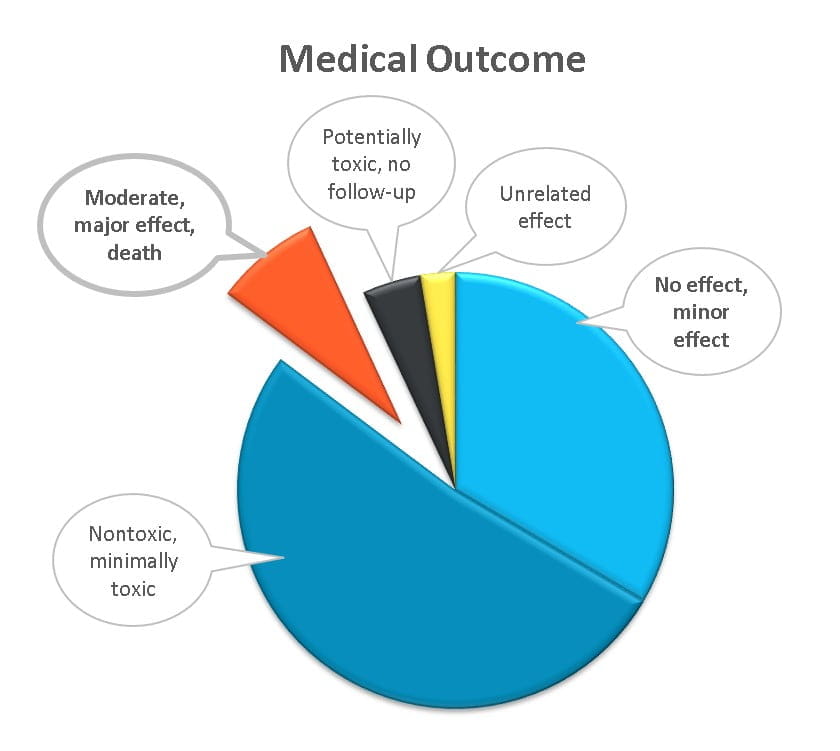
Poisoning Statistics, 2020
Poison statistics for the Washington, DC metro area (2020)
Displaying 71 - 80 of 382 results for "prescription medication label information"
Poison statistics for the Washington, DC metro area (2020)
Apoquel® is the brand name for oclacitinib, a medication approved for use in dogs to stop itching caused by many different reasons. This medication is similar to corticosteroids but, has fewer side effects. Oclacitinib is only indicated for use in dogs and is not for human consumption.
Thyroid hormones can be found in prescription medications and in some over-the-counter weight-loss supplements. Thyroid hormones should not be used for routine weight loss.
Heroin, an addictive, illegal drug, can cause fatal overdoses. It is an opioid, a class of drugs that includes morphine, codeine, oxycodone, and hydrocodone, among others. Heroin use is increasing due to tighter controls on prescription opioids. Naloxone is the antidote for an acute overdose. Withdrawal should be medically supervised.
Morning sickness is common during pregnancy and can lead to severe complications for some women. Fortunately, there are multiple treatment options available, including both prescription and non-prescription medications.
Clonidine and guanfacine began as treatments for hypertension but have been found useful in managing attention-deficit/hyperactivity disorder (ADHD). Both drugs can cause adverse effects such as drowsiness, headache, dry mouth, and slowed heart rate, which can be intensified after an overdose. Swallowing even one tablet or coming in contact with a patch can cause toxicity in a child.
Naproxen is a nonsteroidal anti-inflammatory drug that decreases pain and inflammation and reduces fever. Side effects include nausea and stomachache, as well as mild drowsiness, headache, and dizziness. Acute overdose and chronic use may cause reversible kidney toxicity. A naproxen overdose is usually not considered serious unless a large amount is taken.
Spiked beverages have become increasingly common. Although they usually do not contain a high percentage of alcohol, many of the brands and names are for products that traditionally have not contained alcohol. This can cause problems when children or unsuspecting adults consume them, believing they are non-alcoholic.
Antihistamines are medicines to treat allergic reactions to pollen, dust, pet dander, foods, and drugs. Antihistamines are found in many different forms for children and adults: liquids, tablets, creams, nasal sprays, and eye drops. Finding the best antihistamine for your symptoms can take a while. In the meantime, never take too much!
SGLT-2 inhibitors are effective in treating heart failure for patients with and without diabetes. Because of their benefits in reducing death and hospitalizations from heart failure, these medications are being used more often.
Don't guess what you should do. Get accurate Poison Control answers online or by phone. Both are free and confidential.
or CALL 1-800-222-1222
The Poison Post® is a free, quarterly
e-newsletter delivering poison prevention tips right to your inbox!
Learn the Poison Help jingle in English or Spanish. Use these jingles to teach the Poison Control number: 1-800-222-1222. Available for download.










